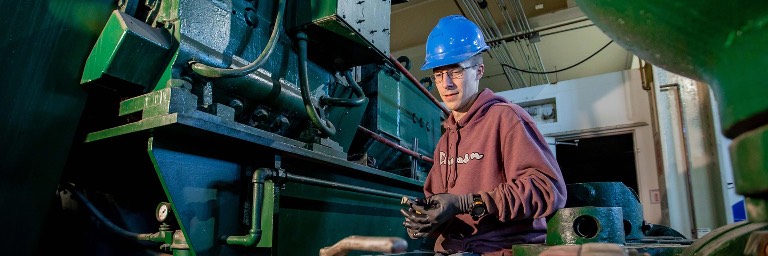Combined Energy Engineering Degree
UND is a world leader in energy-related research and education.
If you want to be on the forefront of one of the most exciting and growing engineering disciplines, a career in energy engineering might be right for you. At UND, you’ll benefit from one of the strongest energy research programs you can find anywhere.
- Program type:
- Accelerated (Bachelor’s and Master’s)
- Format:
- On Campus or Online
- Est. time to complete:
- 5 years
- Credit hours:
- 150-160
Why earn a combined Energy Engineering degree?
Energy Engineering at UND
-
UND is a world leader in energy-related research and education. We are recognized by U.S. News & World Report as a top online graduate engineering program.
-
Customize your curriculum to meet your areas of interest, with an emphasis on sustainable energy engineering design.
-
Develop a broad background in the technical, economic and societal factors needed to develop sustainable energy.
-
Conduct research and development activities in sustainable energy fields, or pursue advanced studies in technologies that will provide sustainable sources of energy in the future.
-
Participate in research conducted with the Energy Studies Program, the Petroleum Research, Education & Entrepreneurship Center of Excellence (PREEC), or in collaboration with the Energy & Environmental Research Center.
-
Flexible research topics allow online students to choose projects aligned with their company's needs.
Energy Engineering Jobs
Combined Energy Engineering Courses
Online Energy Systems Engineering Combined Degree
Leaders in Engineering
Helping you fulfill your aspirations is our highest priority. We'll work with you to design a custom educational plan that meets your goals.
